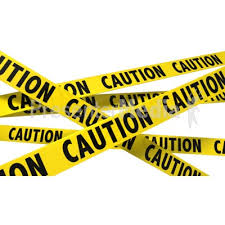I’ve admittedly taken a bit (actually, more than “a bit”; lots of bits) of a hiatus from my blog, but I can explain. Of all of the miscellaneous topics I could reasonably cover (given that my blog is called “Miscellaneous Musings”), one topic in particular has been closest to my heart and most constant in my head since my last blog post. I knew I needed to get this off of my chest before I could tackle any other topic/issue. However, this topic is exceedingly difficult for me to write about, given how personal it is to me. What is this mysterious, difficult topic am I building up to? Eating disorders and body image.
A little over a week ago, I had the privilege of seeing author Laurie Halse Anderson speak in St. Paul, Minnesota. She bravely broaches the subject of eating disorders in her book ‘Wintergirls.’ She does not romanticize eating disorders in any way, shape or form; the reader is submersed in the illogical, tortured mind of an eating disorder sufferer. If you are hesitant to call an eating disorder a disease, reading ‘Wintergirls’ will convince you otherwise. It is a disease of the mind, and food (or rather the controlled intake of food) is the sufferer’s drug.
When I was in middle school and high school, anti-drug programs (D.A.R.E. in middle school and T.A.R.G.E.T.–Teens Achieving Recognizable Goals Through Education and Teamwork–in high school) were prevalent. We would have assemblies about the dangers of drugs; watch skits that demonstrated “The Power of Saying ‘No'”; and stage car crashes before Homecoming as a visual reminder of the dangers of drinking and driving. However, a powerful form of addiction that was by and large overlooked was the issue of eating disorders. I call eating disorders “addictions” because that’s what they are–I know firsthand that is exactly what they are.
My own body dysmorphia and cycle of body abuse began when I was in my last years of high school, but I didn’t consider my thoughts and actions to be anything but normal. After all, no one had ever really talked to me about eating disorders. I had constructed my own definition of ‘normalcy.’ Based on what I observed and absorbed from the majority of my cultural/peer influences, I concluded that it would be abnormal to admit that you were happy with your body. I knew I certainly wasn’t ‘normal’ in other ways (I was by no means bubbly and outgoing), but I never thought that how I treated my own body was anything but normal. I did not spiral into the danger-zone that Lia, the protagonist of Anderson’s ‘Wintergirls’ (Lia’s own disordered thoughts being the antagonist of the novel), found herself in. Still, I will admit that remnants of my past disordered thinking plague me even now, in my present. Those little cling-on criticisms, the dust bunnies in my brain, make me question whether it is even possible to completely ‘heal’ oneself after an eating disorder (not just physically, but mentally). I know how all-encompassing the addiction can be. I know how easy it is to convince yourself that your body dysmorphic thoughts are normal when it seems like the entire world is preoccupied with bodily faults: stick-thin women (and men, for that matter) whom are dubbed ‘models’ and meant to present the ideal body image; relatives and peers who cringe at pictures of themselves and only see their supposed flaws; billboards and advertisements bombarding us with ways to ‘improve’ ourselves. Not to mention, there is such a thing as having a genetic predisposition for an eating disorder(s), meaning that the tendency to develop a disordered relationship with food is encoded in your DNA.
Then there is this difficult question: Can someone who has suffered from an eating disorder ever be ‘normal’? What does ‘normal’ even mean, anyway? It’s not like humans are born with an internal GPS that can spazz at them when they stray from the norm: “Caution: Now approaching the borders of Normalcy! Find a different route or else risk crossing the border into Abnormal!” Not to mention that we all have different definitions of normalcy that are fluid and typically evolve over time. I myself don’t feel like I can answer this question because I personally don’t know anyone who is, by my own definition, ‘normal.’ Human beings wouldn’t be human beings if they didn’t have quirks and abnormalities. For myself, I don’t aspire to ‘normal.’ I simply aspire to be the sort of person I would like to be, and that is someone who does not let food dictate my life. That is something that I am working on, day by day.
All the best,
Miscellaneous Maddie

